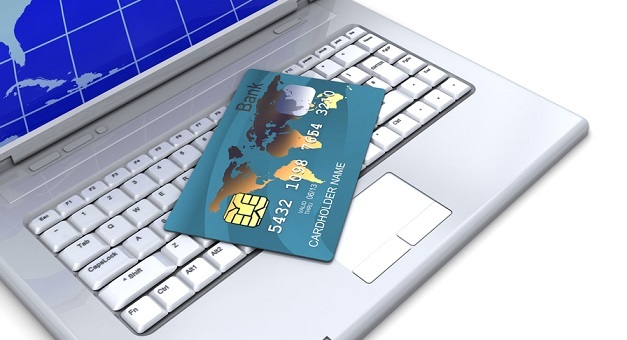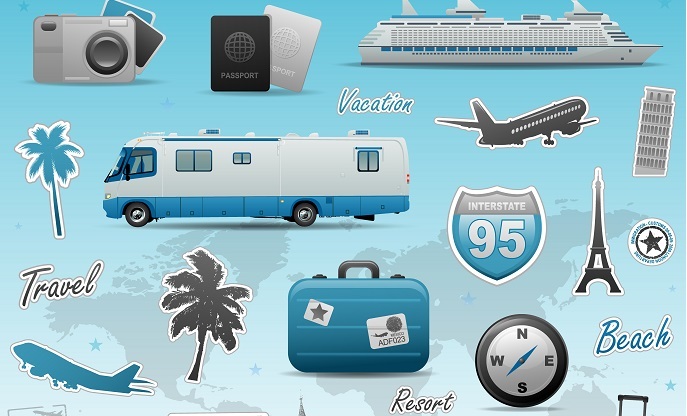
 Data Structure
Data Structure Networking
Networking RDBMS
RDBMS Operating System
Operating System Java
Java MS Excel
MS Excel iOS
iOS HTML
HTML CSS
CSS Android
Android Python
Python C Programming
C Programming C++
C++ C#
C# MongoDB
MongoDB MySQL
MySQL Javascript
Javascript PHP
PHP
- Selected Reading
- UPSC IAS Exams Notes
- Developer's Best Practices
- Questions and Answers
- Effective Resume Writing
- HR Interview Questions
- Computer Glossary
- Who is Who
Applying for a Forex Card
Introduction
Prepaid travel cards, commonly called forex cards, are a common and practical method of paying for foreign travel. These cards let users load different currencies onto a single card and use it to make purchases at foreign shops or withdraw cash from ATMs.
Forex Cards in India
The number of forex cardholders in India has increased due to the utility benefits offered and ease and convenience. These cards can be loaded with currencies based on the user's travel plans and issued by banks and other financial institutions. Fixed exchange rates are another advantage of forex cards. This helps users avoid fluctuations in currency exchange rates.
Characteristics of Forex Cards
Forex cards have various features and benefits, making them an attractive option for international travellers. Some of the key characteristics of Forex cards are
Multiple Currencies The ability to load various currencies into a single forex card might save travellers the inconvenience of carrying multiple currencies or paying high exchange fees.
Fixed exchange rates Forex cards offer the benefit of fixed exchange rates, which can help users avoid fluctuations in currency exchange rates.
Security Forex cards are more secure than cash as they come with a PIN that must be entered for every transaction. Additionally, the card can be blocked immediately in case of loss or theft, preventing unauthorized transactions.
Easy to use Forex cards are easy to use, and transactions can be done through ATMs or by swiping the card at merchant establishments.

Do's of Forex Cards
Knowing the dos and don'ts is the best way of using a Forex card.
Please do not share the PIN with anyone, and keep it secure.
A backup card should be kept in case of loss/theft.
The balance should be checked regularly to make sure of enough funds.
Choose a card that offers low fees.
Don'ts of Forex Cards
Please do not use the Forex card for online transactions, as it may attract additional fees.
Please do not use the forex card at dynamic currency conversion (DCC) enabled merchant establishments, which can result in higher transaction fees.
Refrain from withdrawing cash frequently as it may cost you high transaction fees.
Process of Applying for Credit Cards
Applying for a Forex card is straightforward and can be done online or offline. Here are the steps involved
Choose a bank or financial institution that offers forex cards.
Visit the bank's website or branch to fill out the application form and provide the documents for proof of identity, address, and travel itinerary.
Choose the amount of the currencies you want to load into the card and pay the necessary fees.
List of Documents Necessary for Forex Cards
The following documents are required for the application for a Forex card.
Proof of identity Pan card, Aadhaar, passport, etc.
Proof of address Voter ID, driving license, utility bills, etc.
Travel itinerary Details like flight tickets and hotel bookings.
Passport A copy of your passport.
Charges applied on Forex Card
There are certain fees applied on a Forex card that should be known, such as
Issuance Fee The issuance fee is an initial charge the bank or financial institution charges when the forex card is issued to the customer.
Reload Fee The reload fee is a charge that is applicable when the customer loads additional funds into the forex card.
ATM Withdrawal Fee A transaction fee is applicable when the forex card is used to withdraw cash from an ATM.
Inactivity Fee Some banks or financial institutions may charge an inactivity fee if the forex card has not been used for a specific period.
Credit Card V/s Forex Card

Regarding international travel, there are various payment options available to travelers. Two popular options are credit cards and Forex cards.
Features |
Credit Card |
Forex Card |
|---|---|---|
Currency |
Local currency (INR) |
Multiple foreign currencies |
Exchange Rates |
Higher exchange rates |
Competitive exchange rates |
Fees |
Higher fees for foreign transactions |
Lower fees for foreign transactions |
Credit limit |
Higher credit limit |
Preloaded with limited funds |
Interest rates |
High-interest rates on unpaid balances |
No interest is charged as it is a prepaid card |
Acceptance |
Widely accepted domestically and internationally |
Accepted internationally, may not be accepted domestically |
Protection |
No protection against exchange rate fluctuations |
Protection against exchange rate fluctuations |
Examples of Forex Cards
Forex cards are prepaid travel cards that can be used for international travel. Banks and financial institutions issue them, which can be loaded with multiple currencies. Here is a list of some examples of Forex cards that are available in India
HDFC Bank Forex Plus Card
ICICI Bank Travel Card
Axis Bank Multi-Currency Forex Card
SBI Multi-Currency Foreign Travel Card
Kotak Mahindra Bank Multi-Currency World Travel Card
Yes, Bank Multi-Currency Travel Card
American Express Global Travel Card
RBL Bank World Travel Card
Standard Chartered Bank Multi-Currency Forex Card
Conclusion
Applying for a Forex card can be a convenient and cost-effective way to access foreign currency when travelling abroad. Forex cards offer competitive exchange rates, lower fees, and protection against exchange rate fluctuations. With the right forex card and proper usage, you can enjoy a hassle-free international travel experience.
FAQs
Q1. What is a Forex card?
Ans. A Forex card is a prepaid travel card that can be used for international travel. Banks and financial institutions issue it, which can be loaded with multiple currencies.
Q2. What are the benefits of a Forex card?
Ans. Forex cards offer competitive exchange rates, lower fees, and protection against exchange rate fluctuations. They can also be used like debit cards to withdraw cash or purchase at merchants that accept the card's network.
Q3. How do I apply for a Forex card?
Ans. You can apply for a Forex card online or visit a bank or financial institution. The application process generally involves submitting basic personal and travel details and the required documents.
Q4. What documents are required to apply for a Forex card?
Ans. The required documents may vary depending on the bank or financial institution. However, some standard documents include a copy of your passport, visa, air ticket, and PAN card.
Q5. Can I use my Forex card in India?
Ans. Forex cards are generally meant for international travel and may only be accepted by domestic merchants in India. However, some forex cards may allow you to use them in India for certain purposes, such as online transactions or cash withdrawals at ATMs.

